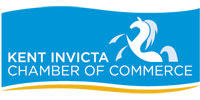As the latest ONS data shows there are currently more job vacancies than people looking for work, the British Chambers of Commerce says the government must "get serious about jobs" as small firms continue to struggle to recruit.
The latest labour market statistics, published this week by the Office for National Statistics (ONS), show that, for the first time ever, there are more job vacancies than people looking for work in the UK. Business groups are warning that continued labour shortages are making it much harder for UK small businesses to grow.
The ONS reports that the number of unemployed people per vacancy fell to a record low of 0.9 in June to August 2022. The unemployment rate in the same period decreased to 3.5%, the lowest rate since 1974. The findings also show that while the number of employees decreased on the quarter, the estimated number of payrolled employees for September 2022 is a record 29.7 million. There has also been an increase in the number of self-employed workers.
Buinsess groups are calling for the government to take steps to ease the tightness in the labour market. David Bharier, head of research at the British Chambers of Commerce (BCC), said: "Once again, today's data confirms that the UK is facing the tightest labour market in years. Our own research shows that labour shortages are holding back the ability of many businesses to service existing customers and grow.
"Businesses are currently facing multiple external shocks, from global supply chain disruption, rampant inflation and rising interest rates. Labour shortages are yet another issue weighing down on business confidence.
"If government is serious about growth, it needs to get serious about jobs. There are key reforms it should adopt to help ease tightness in the labour market. These include supporting greater business investment in workforce training, adopting flexible working practices, expanding the use of apprenticeships, and a comprehensive reform of the Shortage Occupation List to allow sectors facing urgent demand for skills to get what they need."
The Federation of Small Businesses (FSB) has called for "a holistic approach to skills and training". Martin McTague, FSB national chair, said: "The widespread labour shortage is limiting small firms' ability to grow, as they also wrestle with a worsening energy crisis in the winter, rising interest rates and rampant inflation. What small firms need now is a holistic approach to skills and training. Maintaining Skills Bootcamps in the long term and enabling small businesses to automate processes by continuing to ensure that R&D tax credits can be claimed without needless administrative hurdles should help.
"It's vital to ensure small firms can access global talent, as they don't have the same level of resources as big corporates to sponsor overseas workers - limiting visa fees to £1,000 for small employers will help us get there."
There is also concern about the rising economic inactivity rate, largely driven by those aged 50 to 64 years who are not working because of long-term sickness. Kitty Ussher, chief economist at the Institute of Directors (IoD), said: "In the longer term, it is essential that government gets a handle on the rising sickness rates among 50-64 year-olds that are causing them to drop out of the labour market, both for their wellbeing and to make it easier for employers to find the talent they need."
Written by Rachel Miller.
